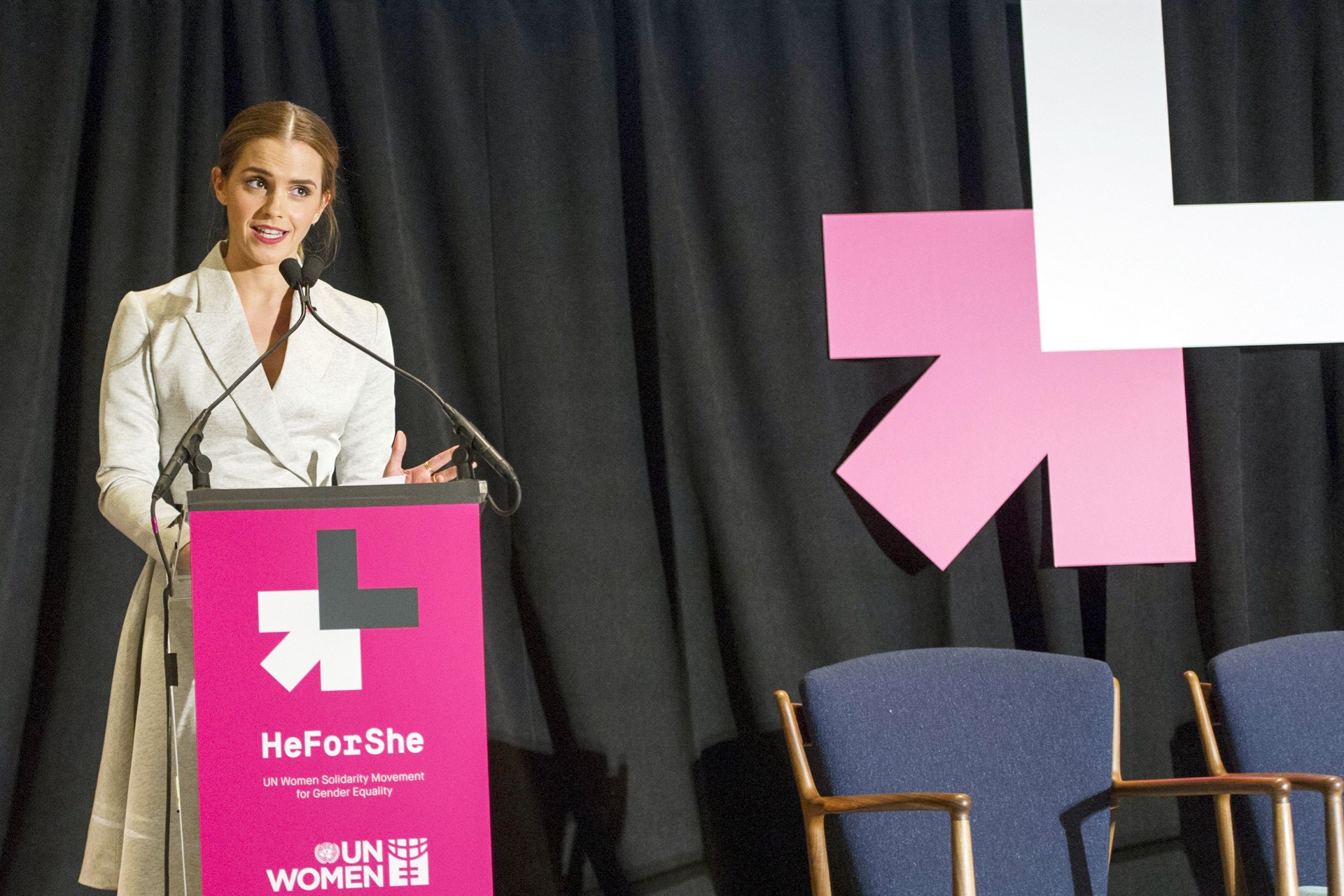At the World Economic Forum in Davos in January, Canadian Prime Minister Justin Trudeau spoke about how men have a big role to play in “supporting and demanding equality” for women. Historically, the women’s rights movement has been a movement for women by women. However, as we progress into a new era of feminism, the fight for gender equality must be seen as a fight for basic human rights. If we want to achieve this, men must also play a significant role.
In 2014, a solidarity campaign called HeForShe was initiated by UN Women in order to engage men and boys as agents of change for the achievement of gender equality and women’s rights. The idea of this campaign was to encourage males to take action against inequalities faced by women and girls. Since its inception, HeForShe has received over 732,000 commitments from both men and women who have pledged to support the ideals of the campaign and to advocate for gender equality. After all, men do constitute half of the world’s population and hold positions of power at a much greater level than women. Campaigns such as this, which recognise the importance of the male role in supporting women’s rights, must be heavily promoted and supported.
Disparities among the genders are undoubtedly more evident in third-world and developing countries where practices such as forced child marriage and female genital mutilation are still far too prevalent. But this does not mean that there are not examples where women are still treated as second class citizens in countries like Ireland – there are many.
The issues raised in it included closing the gender pay gap, changing Ireland’s record on violence against women and repealing the eighth amendment, among other things.
Prior to this year’s general election, the National Women’s Council of Ireland launched their “FemGen” manifesto, outlining the key issues faced by women in Ireland in 2016. In total, 147 election candidates signed up to the manifesto. The issues raised in it included closing the gender pay gap, changing Ireland’s record on violence against women and repealing the eighth amendment, among other things. Though such issues are more subtle in nature compared to the difficulties women face in other parts of the world, they still exist and must be dealt with if gender equality is to become a reality.
Repealing the eighth amendment is without a doubt the most pressing women’s issue in Ireland at present. Our abortion laws are some of the most stringent in Europe and have been heavily criticised by both the UN Human Rights Committee and Amnesty International. Pregnant women in Ireland are only given a qualified right to health and thousands are forced each year to travel abroad in order to get a termination. Though this isn’t an issue which directly affects men, it is one they should support. The State doesn’t prevent men from making choices concerning their own bodies and neither should it prevent women.
Evidence shows that gender quotas take time to show a substantial change in female participation.
2016 also saw the first use of gender quotas in Irish elections. After some backlash in the media and a High Court Appeal, the legislation on gender quotas remained in place, resulting in a noticeable increase in the number of women elected. The election of 35 female TDs is a big step for women’s rights. Having women in positions of power is fundamental in moving towards gender equality at an accelerated pace. Evidence shows that gender quotas take time to show a substantial change in female participation. As more and more female TDs are elected over the next few cycles, championing women and girls issues at a national level must be high on their agenda.
In Davos, Trudeau also touched on the negativity that pervades the term “feminist”. He said that men and women should use it to describe themselves whenever they want. Many people are inclined to say that they support equality for women but would not go so far as to say they are feminists. Supporting women’s equality and identifying as a feminist are not disparate concepts. At its heart, the feminist message is about both women and men having equal rights and opportunities and people shouldn’t shy away from identifying as one.
The efforts by Trinity College Dublin Students’ Union this week in promoting gender equality, as well as the HeForShe campaign, must be commended. International Women’s Day should not just be something which comes and goes – it should be a day for highlighting the continued struggle for gender equality, not only in Ireland but throughout the world. It should also have a lasting effect. For men who struggle with the idea of advocating for women’s rights, they should think about the women in their lives – their mothers, sisters, girlfriends – and think about how they want them to be treated. Ask what sort of world do you want your future daughter to grow up in? One where she has the same rights and opportunities as her brothers, or one where she is treated as an inferior citizen just because of her gender? Actress and advocate, Fátima Ptacek, summed it up very well in saying: “I am the daughter of a man…the sister of three brothers … my work for gender equality is not an attempt to disparage them. It’s simply my belief that I am of equal value.”







